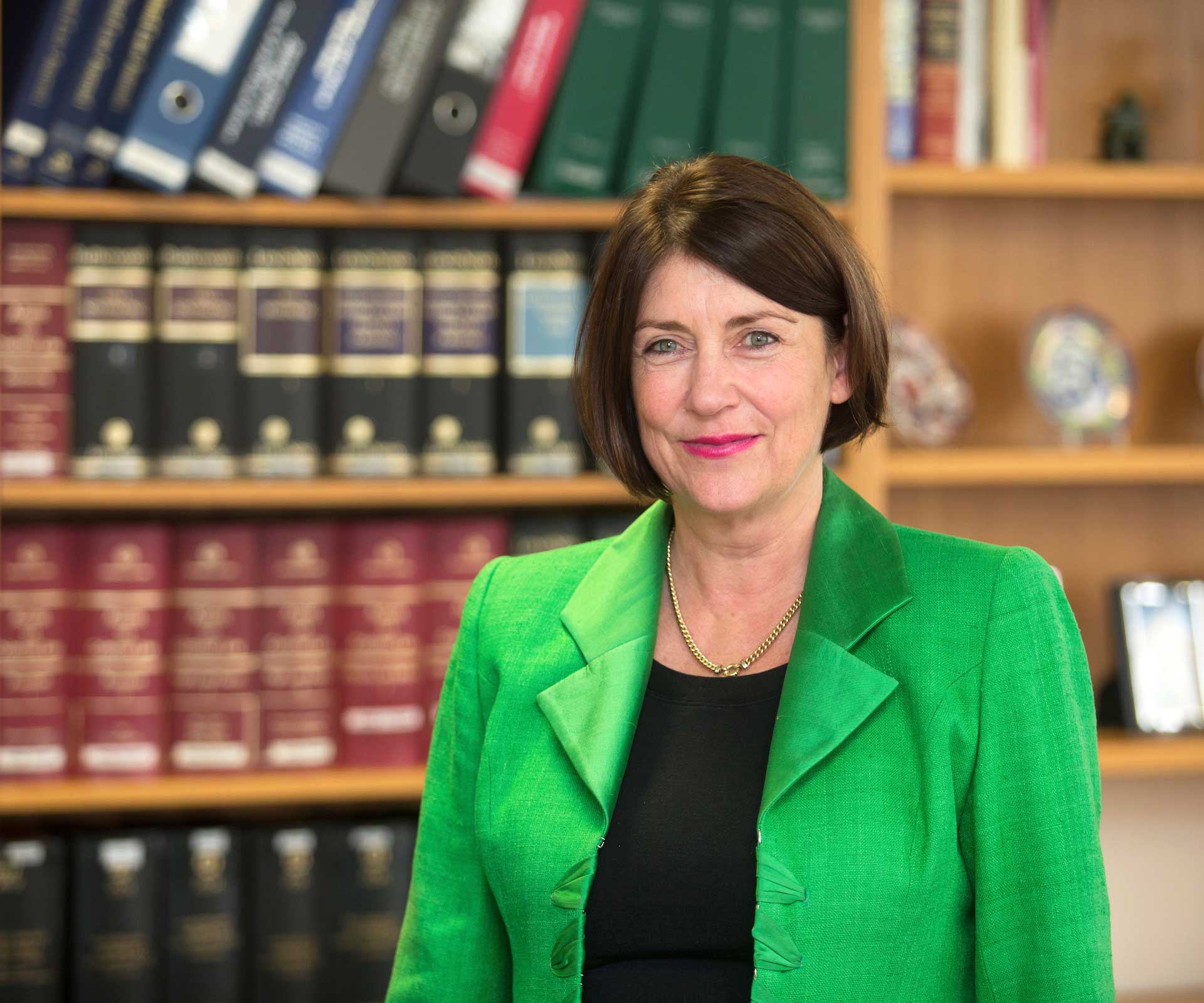For most of us, sending a postcard is a chance to connect with loved ones while on a fantastic holiday. But the postcards domestic violence campaigners Ruth Herbert (64) and Deborah Mackenzie (47) plan to mail carry a more powerful message.
Both women have worked in the domestic violence sector for decades and while they admit it can be exhausting, they say their job gives them purpose. “There isn’t a week that goes by that Deborah and I aren’t in tears in our office because of something we’ve just read,” says Ruth.
The women are co-founders of The Backbone Collective, a national coalition and online community for women to share their experiences when they feel they aren’t being heard and have nowhere else to turn.

Ruth and Deborah (pictured)’s Postcard Project is aimed at getting victims’ voices heard.
The Postcard Project is part of a campaign to get victims’ voices heard. They want to learn how victims feel about the support available to them when they reach out for help. They also want to hear from those around them who are attempting to offer support.
About 9000 postcards will be sent out. On them, women can write their personal experience or a message to send to a politician or organisation.
“We want the postcard to be used by a wider group who have been affected,” tells Deborah. “That includes others who are beside them, the close friends and parents walking the journey with them.”
Deborah and Ruth say they are inundated daily with heart-wrenching stories from women who have suffered in violent relationships and may also be struggling to navigate the system.

Ruth, a former chair of the Glenn Inquiry into domestic violence, wants women to feel they’re being heard.
“We are not here doing this as a job,” explains Ruth, who led the Glenn Inquiry, an investigation into the rate of child abuse and domestic violence in New Zealand.
“We are doing this because we know the lived experiences of women and children, we know the pain they are going through. That’s what drives us.”
They argue the justice settings – social services, organisations, charities and the family court system – designed to keep women and families safe once they make the decision to leave violent situations aren’t always working.
About 200,000 cases go through the courts each year. The pair surveyed 600 women who had approached the Backbone Collective about their experiences of seeking help.

LW Photographer generously donated her beautiful artwork ‘Walking on Eggshells’ for the cause. If you wish to get a postcard, head to backbone.org.nz.
They were astonished to learn some women felt re-victimised by the court process or felt their complaints were brushed off.
“We want a woman who decides to get out of a bad relationship to be able to and to step into a system that helps her and her kids,” asserts Deborah.
In the four months the collective has been running, more than 900 women have signed up, and Deborah and Ruth say the number increases daily.
“One of the reasons Backbone has been so successful in such a short time is because most women feel it’s not safe for them to speak out,” says Ruth.
“It’s time for these voices to be heard. We’ve talked about being a funnel. Our job is to collect the voices of these women and megaphone them out. The Postcard Project lets them have their voice.”
Ruth and Deborah hope these postcards will amplify women’s voices, ultimately leading to a Royal Commission of Inquiry on family violence.
“There’s a solidarity that these women know they aren’t alone in this and that they’re being listened to,” says Ruth. “That’s the plus of the collectiveness of Backbone.”
Adds Deborah,“I call it my bitter pill of hope. We are determined that life can get better for women who leave a dangerous situation.”
Family Court weighs in

Chief District Court Judge Jan-Marie Doogue.
Chief District Court Judge Jan-Marie Doogue says district court judges deal with 200,000 criminal, family and youth matters every year, and see the aftermath of family violence daily.
“Family violence is a blight on society, especially our children,” she asserts.
“People may be at risk or at a low point when they look for help from the justice system. It would worry me if vulnerable people were put off seeking that help when they most need it because of attacks on the system.”
At least one in eight prosecutions results from family violence, says Judge Doogue, stating all judges are deeply committed to giving people a fair hearing. “Family violence cases are notoriously complex.
It is difficult to repair harm when the courts are called on after the violence has occurred,” she says.
“In the Family Court, where families in civil disputes seek a judge’s intervention, accusations of violence – sometimes from both sides – may be entangled in arguments about care and custody arrangements. Feelings can run high.
“We always listen closely to calls for the system to do better, including from advocates for family violence victims, and especially from experts such as the Family Violence Death Review Committee, who draw on sound data and research to suggest change.”
However, judges also keep updated on the latest developments, Judge Doogue says, and lead work on making “the path to justice less traumatic or dangerous”. Every district court judge completed three days’ intensive training on the dynamics of family and sexual violence in 2015.
Specialist sexual violence courts are also being trialled, and those judges who are hearing bail applications are being told about any family violence history, according to Judge Doogue.
**If you are in danger now, call the police on 111 or get a friend to call for you.
For more help or information:**
Women’s Refuge free 24/7 crisis hotline 0800 733 843
Shine free helpline 9am-11pm 0508 744 633
It’s Not Ok information line 0800 456 450
-and-Deborah-Mackenzie-(47).jpg)

